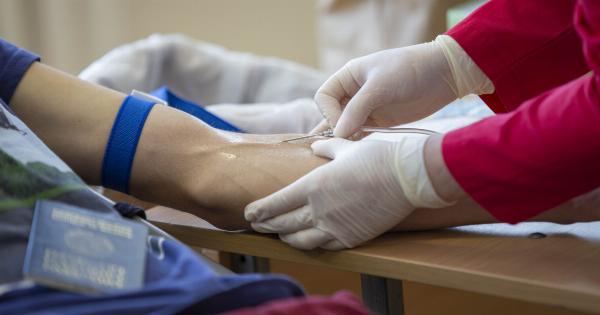Platelets are tiny blood cells that help the body form clots to prevent bleeding. An elevated platelet count, or thrombocytosis, is a condition in which there are too many platelets in the blood.
While an elevated platelet count can occur due to a variety of reasons, including infection or inflammation, in some cases, it can be a sign of cancer.
Understanding Platelets and Their Role in the Body
Platelets are produced in the bone marrow and circulate in the blood. Their primary role is to form clots at the site of injury by sticking together and forming a plug. This helps stop bleeding and minimize further damage to the body.
An average platelet count ranges from 150,000 to 450,000 platelets per microliter of blood. A count above this range is considered to be an elevated platelet count, or thrombocytosis.
The Risk Factors for Elevated Platelet Count
There are several factors that can increase the risk of developing an elevated platelet count. These include:.
- Age: As people age, their platelet counts tend to increase.
- Gender: Women are more likely to develop thrombocytosis than men.
- Infections: Certain infections can cause an elevation in platelet levels.
- Chronic Inflammation: Diseases like rheumatoid arthritis, lupus, and inflammatory bowel disease can cause an elevation in platelet counts.
- Surgery: After surgery, the body can produce more platelets to aid in the healing process.
- Certain medications: Some medications like aspirin and ibuprofen can cause an increase in platelet levels.
- Cancer: Cancer can cause an elevation in platelet count.
Platelet Count and Cancer
While an elevated platelet count can occur due to a variety of reasons, including benign factors like infection or inflammation, it can also be an early sign of cancer.
In fact, some studies have shown that up to one-third of patients with an elevated platelet count are ultimately diagnosed with cancer.
Cancer can cause an elevation in platelet levels for several reasons. First, cancer cells can release platelet-stimulating factors that cause the body to produce more platelets.
Second, cancer can cause inflammation in the body, which can trigger an elevation in platelet count.
While an elevated platelet count can be a sign of any kind of cancer, it is more commonly associated with certain types. These include:.
- Lung cancer
- Breast cancer
- Ovarian cancer
- Colon cancer
- Pancreatic cancer
- Testicular cancer
- Liver cancer
- Lymphoma and leukemia
If a doctor suspects that an elevated platelet count may be related to cancer, he or she will likely order additional testing to confirm a diagnosis. These tests may include imaging tests like X-rays or CT scans, blood tests, or a biopsy.
Other Symptoms of Cancer
An elevated platelet count on its own is not always a sign of cancer. However, if it is accompanied by other symptoms, it is important to seek medical attention. Some common symptoms of cancer include:.
- Unexplained weight loss
- Fatigue
- Changes in bowel or bladder habits
- A persistent cough or hoarseness
- Persistent pain or discomfort
- Bleeding or discharge from any body opening
Treatment for Elevated Platelet Count
The treatment for an elevated platelet count varies depending on the underlying cause. If the cause is cancer, treatment will focus on treating the cancer itself. This may involve surgery, chemotherapy, radiation, or a combination of these.
If the cause of an elevated platelet count is not cancer, treatment may involve medications that decrease platelet production or prevent clotting.
In severe cases, a procedure called a plateletpheresis may be done to remove excess platelets from the blood.
Preventing Elevated Platelet Count
While some causes of an elevated platelet count, such as aging or infections, cannot be prevented, there are some lifestyle changes that may help prevent thrombocytosis. These include:.
- Quitting smoking
- Maintaining a healthy weight
- Exercising regularly
- Maintaining a healthy diet rich in fruits, vegetables, and whole grains
- Managing stress
Conclusion
Elevated platelet count, or thrombocytosis, can occur due to a variety of factors, including cancer.
While an elevated platelet count on its own is not always a cause for concern, if it is accompanied by other symptoms, it is important to seek medical attention. If your doctor suspects that an elevated platelet count may be related to cancer, he or she will likely order additional testing to confirm a diagnosis and develop a treatment plan.




























